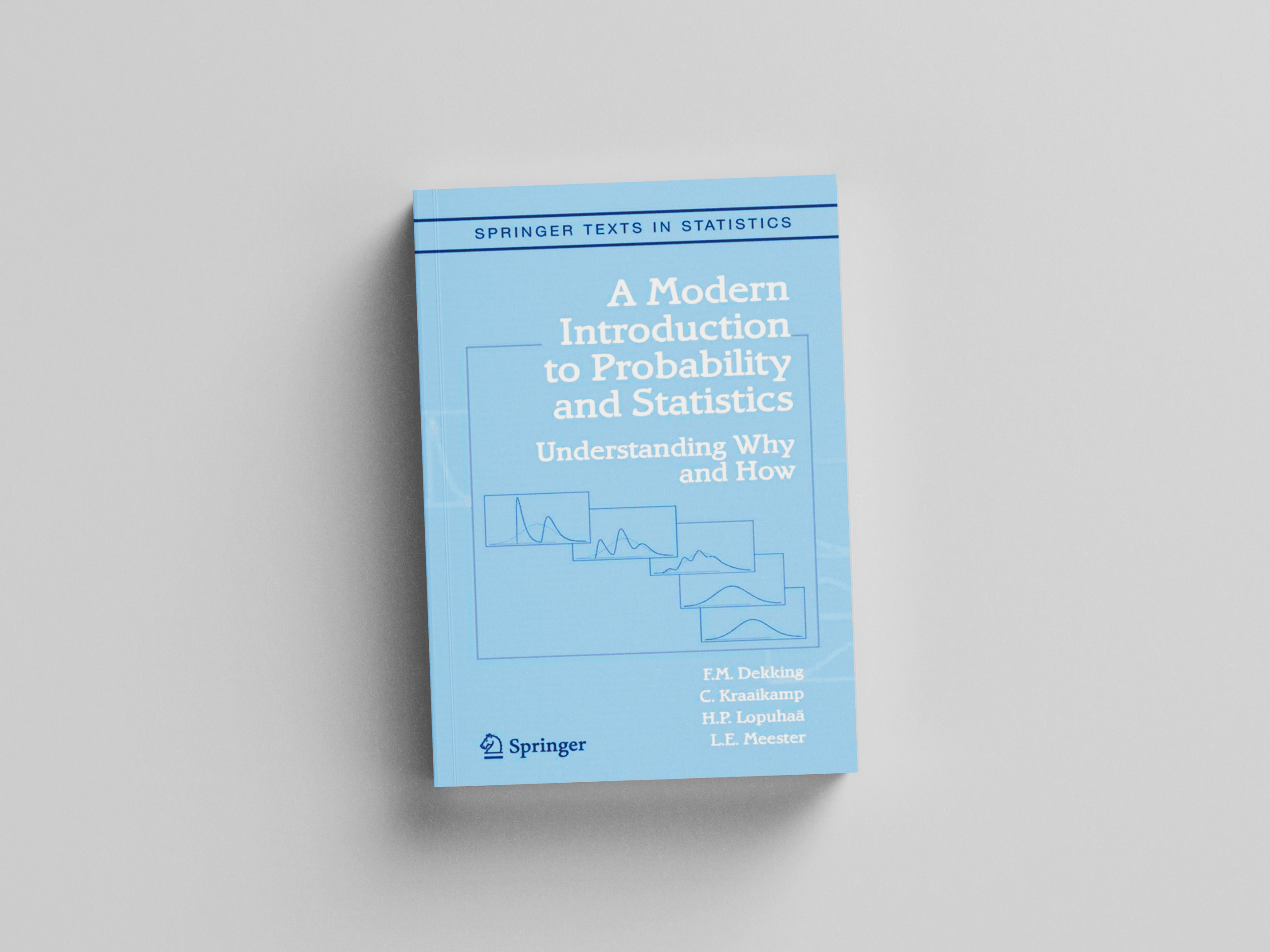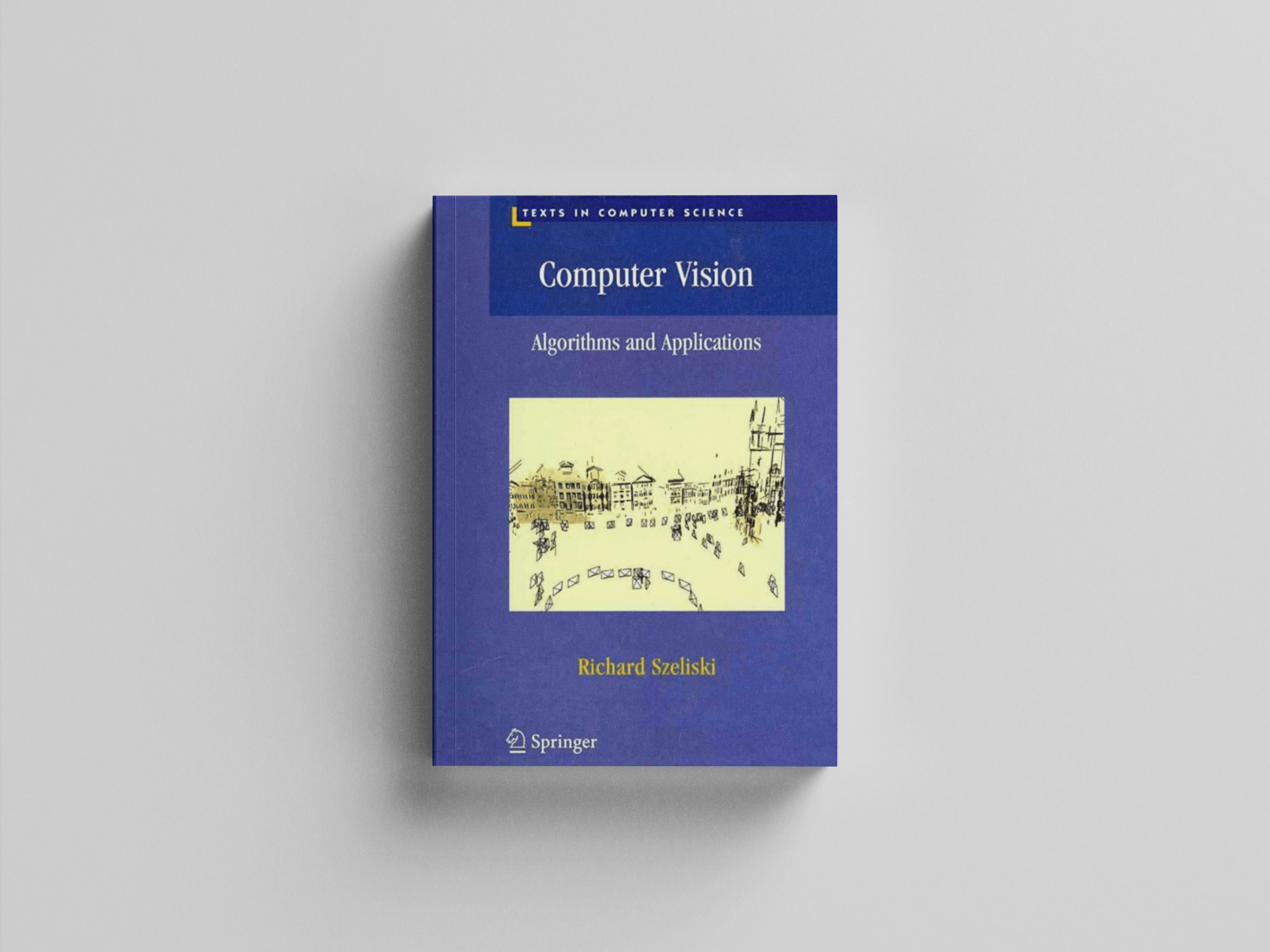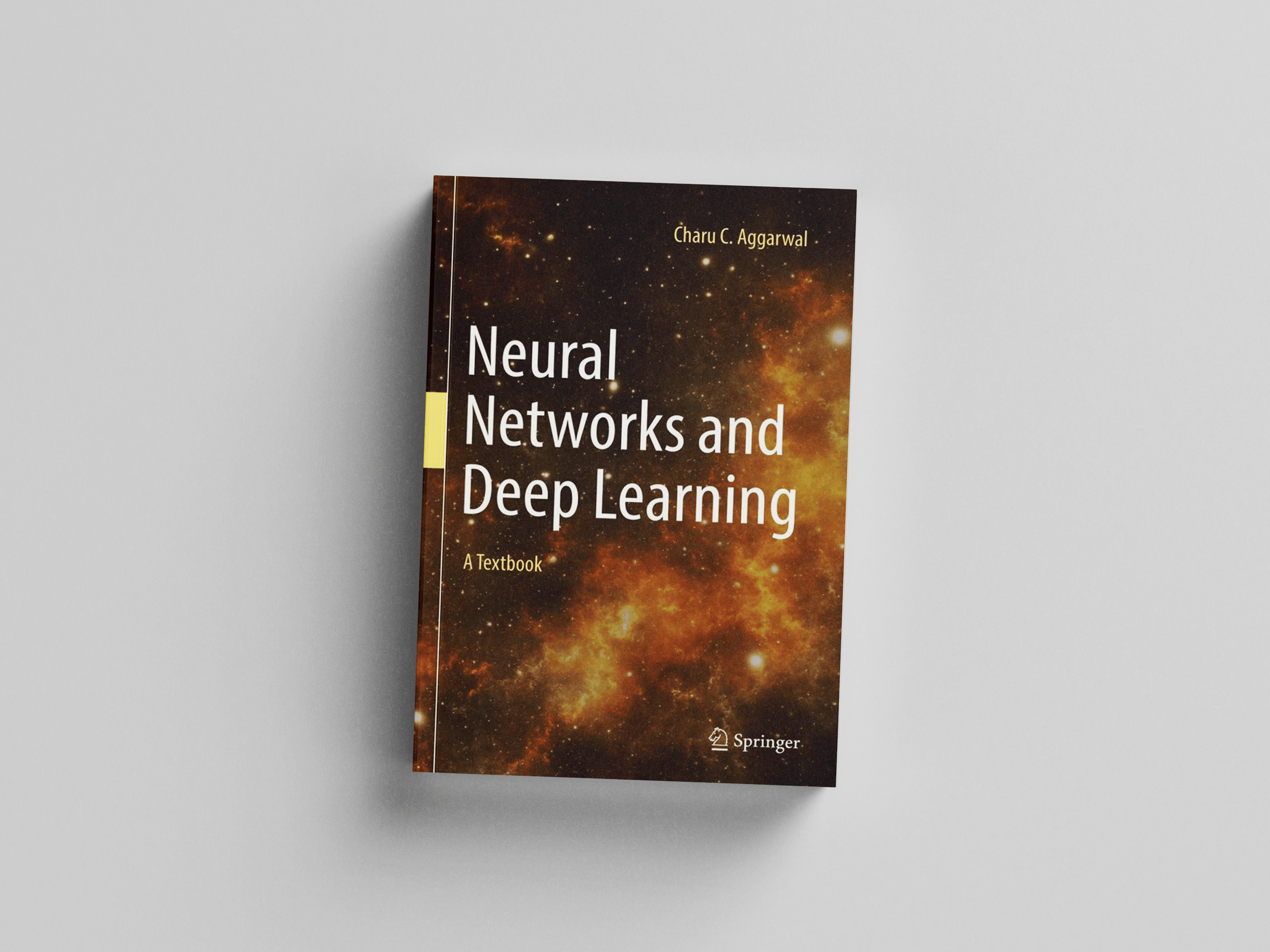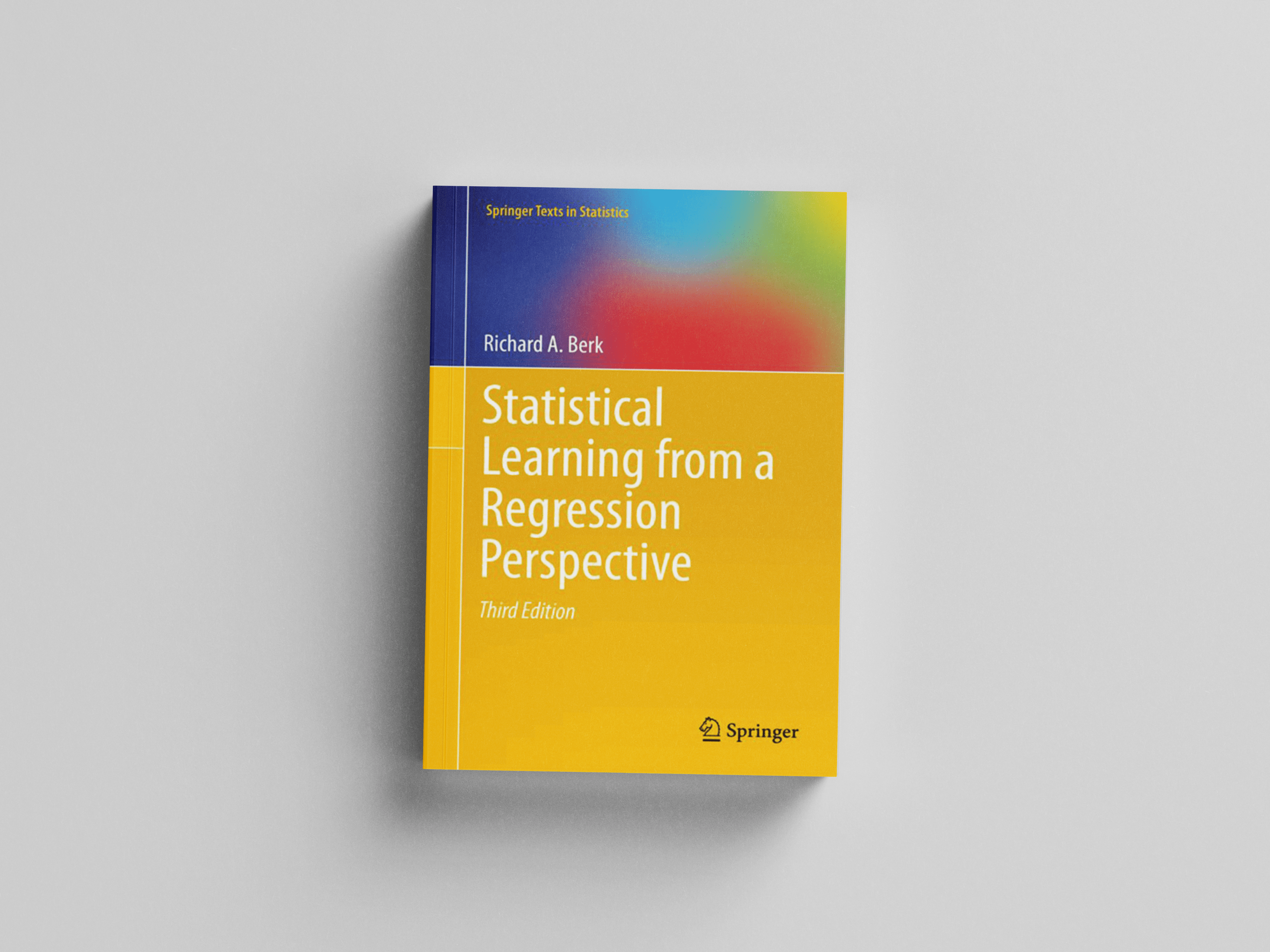After the pandemic, Springer has released 408 free books on a wide range of topics. The List includes a broad variety of technological and scientific topics. They can all be downloaded fully free of charge as a PDF on the official Springer Website.
It is currently unclear how long they will stay free so you should hurry up. That is also why Renan Xavier Cortes has created a program that can download all 8 Gigabytes of Books at once.
In order to save you some reading time, I have again put together a list of the top five best Artificial Intelligence books available for free on the Springer website. Some of these are also mentioned in my 5 Best Artificial Intelligence Books in 2020 list, so you know they're really great.
These books are evaluated on the basis of community reviews and the quality of the content I've noticed while reading each book for myself.

1. A Modern Introduction to Probability and Statistics
A Modern Introduction to Probability and Statistics: Understanding Why and How does exactly what it says. It's a really good book to start studying statistics - the first half of the book starts with plain probability and then goes to random independence and then to fundamental theorems of statistics. As a result, the trip ends with an arrival at statistics.
This is an easy-to-read, easy-to-understand textbook-style tutorial, yet definitions and mathematics can be rigorous. That's why the book is so good for self-study. It's not going to skip a lot of steps, and it can feel a bit informal. It repeats all calculations on the road, so you don't have to go back to the page to find out where that number has been calculated.
The size of the book remains reasonable, precisely enough to contain the material needed, avoiding becoming one of those huge bricks with way too many pages.
The only aspect that is not as good as the rest of the book is the very few examples that have been properly worked out and which make huge assumptions on behalf of the reader. It often moves from a subject without giving any explanation as to why one would want to know what has just been covered in a practical sense.
But this minor point does not mean that the book is bad. Because of its overall high quality, it does not have any other direct competitor I could recommend.

2. Computer Vision: Algorithms and Applications
Computer Vision: Algorithms and Applications gives an excellent and impressive high-level overview of various important sub-fields of computer vision.
It is intended to be used as a textbook since there are questions at the end of each section. So reading each of the relevant papers and producing working software algorithms is left to the reader, which is why Algorithms are not provided as software code, but as a description with a lot of references to papers, mathematical equations, color photos, and diagrams.
It's very well written and illustrated, and it's a good read for anyone interested in Computer Vision. Unfortunately, because it is so high-level and intended to be used as a textbook, it does not provide practical information on implementation details or problems, and it is not a good book to try to learn from on its own.

3. Neural Networks and Deep Learning
Yeah, that's right. Neural Networks and Deep Learning: a textbook is currently available free of charge. This book was already on my 5 Best Artificial Intelligence Books in 2020 list, and now it's even free!
Neural Networks and Deep Learning is an excellent book that begins with a rather detailed introduction to simple neural networks. Opening chapters establish important and very useful links between regular machine learning methods and how neural networks can be designed to recreate them. A number of examples and details are provided to guide you through complicated scenarios.
Once these are established, the early development of neural networks. After setting the basics, the author focuses on topics related to deep learning - starting with RNNs, Deep Reinforcement Learning, CNNs, and even more advanced topics.
The book will allow you to build deep learning applications from the ground up and will make it almost pointless to use libraries like Tensorflow, PyTorch, or Keras. It also provides and cites ample references that inform you of the historical progress and development of the field.
But keep in mind that there are references and comparisons made to concepts that have not yet been made. If you haven't read any introductions to neural networks anywhere else, you won't know what they're talking about.
Don't forget that this is not a technical tutorial, it focuses on theory.

4. Statistical Learning from a Regression Perspective
Statistical Learning from a Regression Perspective is an excellent overview of statistical learning applications, combining theoretical knowledge with applications, statistics with machine learning, and mathematical notations with R Programming, flawlessly. It has relevant exercises and is an excellent textbook for a wide range of students, specializing in data science or taking a course on statistical learning.
The book goes deeper into the approaches and discusses how any given technique can lead to incorrect results with real-world data. It clearly outlines the basic methods of supervised machine learning and is not hard to read if you have already been exposed to the methods used in the book and have some understanding of linear algebra. It also includes discussions on the importance of data collection and management rather than ignoring the study of data.
_BOOK.jpg.png)
5. The Elements of Statistical Learning
This Book was also already on my 5 Best Artificial Intelligence Books in 2020 list for a good reason and now can be had for free.
The Elements of Statistical Learning: Data Mining, Inference, and Prediction (Check out this Download Site from Stanford if the first one is down) contains incredibly relevant machine learning methods and tools that many other books do not touch and are essential for anyone who wants to deepen their statistical knowledge base.
Written by field titans, this is an all-inclusive book that begins with the basics in the first chapters. Later, it introduces the basic techniques of regression and classification and describes much more complex and advanced concepts, such as the various regularization techniques such as Ridge and LASSO, the Benjamini-Hochberg method, support vector machines, and so on.
But don't forget that the explanations may be remarkably poor sometimes. As the authors themselves have said, they expect the reader to have at least one elementary statistical course covering basic subjects, including linear regression. So you're going to need some mathematical maturity.
